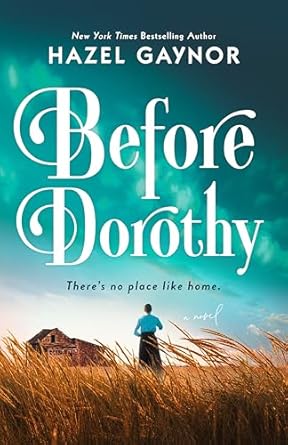I grew up as the son of a man who could not possibly have been my father. Though there was never any doubt that my seed had come from another man, Moses Froben, Lo Svizzero, called me “son.” And I called him “father.” On the rare occasions when someone dared to ask for clarification, he simply laughed as though the questioner were obtuse. “Of course he’s not my son!” he would say. “Don’t be ridiculous.”
But whenever I myself gained the courage to ask him further of our past, he just looked sadly at me. “Please, Nicolai,” he would say after a moment, as though we had made a pact I had forgotten. With time, I came to understand I would never know the secrets of my birth, for my father was the only one who knew these secrets, and he would take them to his grave.
The celebrated opera singer Lo Svizzero was born in a belfry high in the Swiss Alps where his mother served as the keeper of the loudest and most beautiful bells in the land. Shaped by the bells’ glorious music, as a boy he possessed an extraordinary gift for sound. But when his preternatural hearing was discovered—along with its power to expose the sins of the church—young Moses Froben was cast out of his village with only his ears to guide him in a world fraught with danger.
Rescued from certain death by two traveling monks, he finds refuge at the vast and powerful Abbey of St. Gall. There, his ears lead him through the ancient stone hallways and past the monks’ cells into the choir, where he aches to join the singers in their strange and enchanting song. Suddenly Moses knows his true gift, his purpose. Like his mother’s bells, he rings with sound and soon, he becomes the protégé of the Abbey’s brilliant yet repulsive choirmaster, Ulrich.
But it is this gift that will cause Moses’ greatest misfortune: determined to preserve his brilliant pupil’s voice, Ulrich has Moses castrated. Now a young man, he will forever sing with the exquisite voice of an angel—a musico—yet castration is an abomination in the Swiss Confederation, and so he must hide his shameful condition from his friends and even from the girl he has come to love. When his saviors are exiled and his beloved leaves St. Gall for an arranged marriage in Vienna, he decides he can deny the truth no longer and he follows her—to sumptuous Vienna, to the former monks who saved his life, to an apprenticeship at one of Europe’s greatest theaters, and to the premiere of one of history’s most beloved operas.
In this confessional letter to his son, Moses recounts how his gift for sound led him on an astonishing journey to Europe’s celebrated opera houses and reveals the secret that has long shadowed his fame: How did Moses Froben, world renowned musico, come to raise a son who by all rights he never could have sired?
Like the voice of Lo Svizzero, The Bells is a sublime debut novel that rings with passion, courage, and beauty.
- Pub. Date: September 2010
- Publisher: Crown Publishing Group
- Format: Hardcover , 384pp
- ISBN-13: 9780307590527
- ISBN: 0307590526
RICHARD HARVELL was born in New Hampshire, USA, and studied English literature at Dartmouth College. He now lives in Basel, Switzerland, with his wife and children. The Bells is his first novel.
Watch the video trailer
Listen to the radio interview on the Diane Rehm show, NPR
Check out a playlist of music that is mentioned in the book
Like him on Facebook
Check out the official website
Opening Line(s)
First there were the bells. Three of them, cast from warped shovels, rakes, and hoes, cracked cauldrons, dulled ploughshares, one rusted stove, and, melted into each, a single golden coin.Town/Location/Environment:
| Vienna Court Opera, Vienna, Austria, 1902. © BHHC; all rights reserved. |
(Picture borrowed from Burton Holmes)
My Thoughts
Moses' mother grew up on the outskirts of the village, an outcast. Deaf from birth, she was presumed to be an idiot and insane. Filthy and unwashed, no one wanted her around, and they would beat her and chase her away. She had a baby, unnamed since she was unable to speak a name, but she was a good mother and did her best by him as they scavenged for their survival, and she raised Moses in the belfry with the church bells. She loved the bells, the vibrational tones of which caressed her body in a hug when no one else would.
Moses, born unnamed, does not acquire his name until later in life. He spends much of his childhood in a church belfry where his mother plays the bells. Due to her deafness, his mother can tolerate the sound of the bells, which is so loud that it will burst the ear drums of the rest of the villagers if they get too close. However, having been raised in the belfry, Moses is immune to the effects of the bells. Where his mother lived in a world of silence, Moses lives immersed in a world of sound.
There is an innocence to Moses-- a purity. Moses loses his mother and is taken in at a monastery as a young boy. The monastery is run by an abbot by the name of Staudach. A stern disciplinarian, his heart is usually in the right place, but often he goes about it the wrong way.
Moses' best friends are two monks. Nicolai is a large light-hearted, generally jovial monk who has a liking for wine (think “Friar Tuck” from Robin Hood), but he can be fierce and forthright when he feels pushed to it. Nicolai becomes something of a father to Moses, and even gives him his name.
Nicolai's best friend is Remus- a bookish monk who is a quiet loner. A peaceful man, he boasts a hidden strength.
“I think I could find peace there,” Nicolai whispered, almost to himself. When I looked up, I almost believed the giant was about to cry. He looked down at me, and we smiled at each other. In my face I hoped he saw, But Nicolai, I will go! It seemed I gave the big man courage, for he kicked our horse and we drew even with Remus again.Moses is given into the care of choir leader Uhlrich, the creepy old man of the story. Even though his “lust” for Moses seems to be musical rather than sexual (as he instead lusts after the voice of Moses), he is a creepy, lascivious old man.
“In Venice it will all be different.”
“Don’t be such a fool.” With a snap, Remus turned a page. “Forty years a monk and still such idolatry. Just another excuse.”
“Then take me there; then I won’t have any more excuses left. I will stop bothering you.”
“You will find another reason for your discontent. Everyone always does.” (p. 38)
While at the monastery, Moses meets and befriends Amalia, daughter of the town's wealthiest family. Spirited and spunky, passionate and idealistic, early on in their relationship, Amalia keeps Moses guessing, never quite sure where he stands with her.
“We soon found in the warmth of each other’s hands, in the rub of shoulders, and even in the occasional hug some small satisfaction of the child’s need for touch, which we both missed-- me as an orphan, she with an infirm mother and a father who could not embrace without analyzing his love in weights and measures.” (p. 92)This was a very moving story. I often found myself moved to tears, distraught and frustrated. Unfortunately there weren’t many happy moments to make me smile and fill me with joy, as much of the book was quite tragic, but it was moving nonetheless.
Quotes:
“Sadness can sound like giving birth to an unwanted child.” (p. 162)
“Insult and reproach are as common to a bedroom as the bed.” (p. 162)
"I often ask myself," he said, "as I take my bows, how many boys have I castrated with my voice tonight?" (p. 266)
Content Rating: some sexuality, moments of brutality, castration, an "adult" story
My final word: Lovely prose and lyrical descriptions, yet totally "approachable" writing style. A captivating story, fully-fleshed out characters, and unusual subject matter carried me through to the end. Strongly recommended!
My Rating: 9 out of 10
Disclosure:
I received a copy of this book to review through Read It Forward, in exchange for my honest opinion. I was not financially compensated in any way, and the opinions expressed are my own and based on my observations while reading this novel. The book that I received was an uncorrected proof, but I confirmed that the quotes mentioned were included in the actual published version.



















2 comments:
This sounds really good but also really depressing and frustrating. Ugh, castration. But still, your review convinces me it might be worth it!
This one has been on my wishlist for a while now. I think I'll put it closer to the top of my to-buy list. I love your review; it's always good when a book makes you want to Google more info! :)
Post a Comment